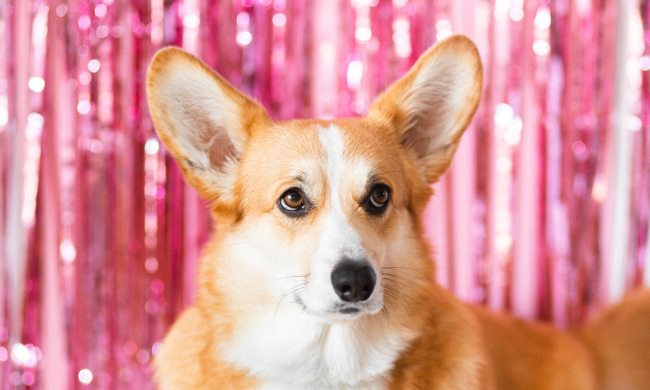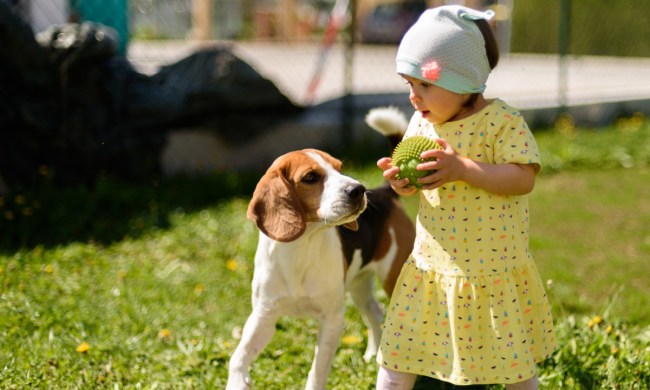French bulldogs are simply adorable. Their large heads, small snouts, wrinkles, and pointy ears can make even the grumpiest person crack a smile. Also, French bulldogs are smaller than English bulldogs, which are generally 14 to 15 inches tall and can weigh up to 50 pounds. Frenchies, on the other hand, only grow to be about 11 to 13 inches tall and weigh under 28 pounds. Are French bulldogs good pets, though?
Their size makes the breed an attractive option for people living in apartments. However, looks and size aren’t everything when choosing the best dog for your family, though. It’s essential to find a dog whose personality meshes with yours. You also want to make sure you have the time and ability to meet your new dog’s needs, whether that’s by giving an active pup tons of exercise opportunities or giving plenty of attention to a dog prone to separation anxiety.
A French bulldog may look cute from afar. However, are French bulldogs good pets? If they are, is the breed right for you? Let’s dig into expert advice and insight to help you decide.
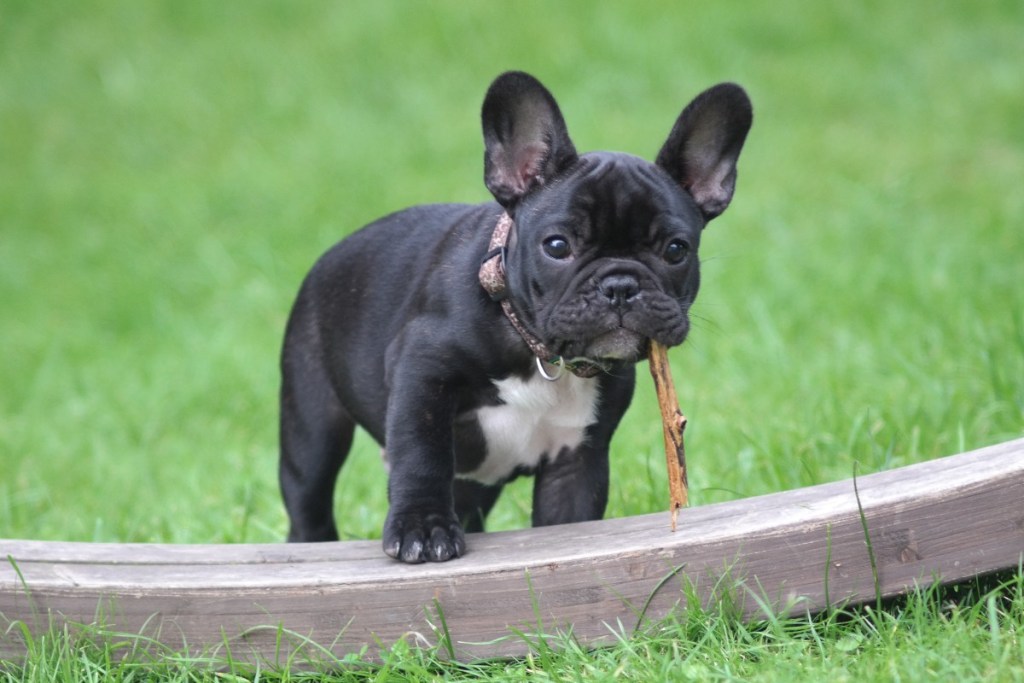
Are Frenchies high maintenance? How much grooming do they need?
French, particularly Parisian, women couldn’t get enough of these adorable little bulldogs at the turn of the last century, and they soon became popular among elites in the U.S. English dog breeders were actually a little intimidated. They were concerned people would try to breed French bulldogs back to English bulldogs. English bulldog breeders weren’t fans and didn’t want their pups to have those famous bat ears.
Ultimately, French bulldog owners formed their own club. In the U.S., some famous dog lovers from the Rockefeller and J.P. Morgan families asked the American Kennel Club (AKC) to recognize the breed, which it did in 1898.
Perhaps that’s why French bulldogs, or “Frenchies,” got the reputation for being high maintenance, but that reputation isn’t true. These animals generally don’t have many extra needs. The AKC says they require moderate mental stimulation—they aren’t couch potatoes, but they don’t need constant jobs or activities. The dogs are usually medium energy.
These short-haired, small-breed dogs are certainly not high maintenance when it comes to grooming. They shed a moderate amount. Monthly coat grooming with a brush should do the trick, whereas English bulldogs typically need more frequent brushes. French bulldogs also tend to drool less than their English counterparts.
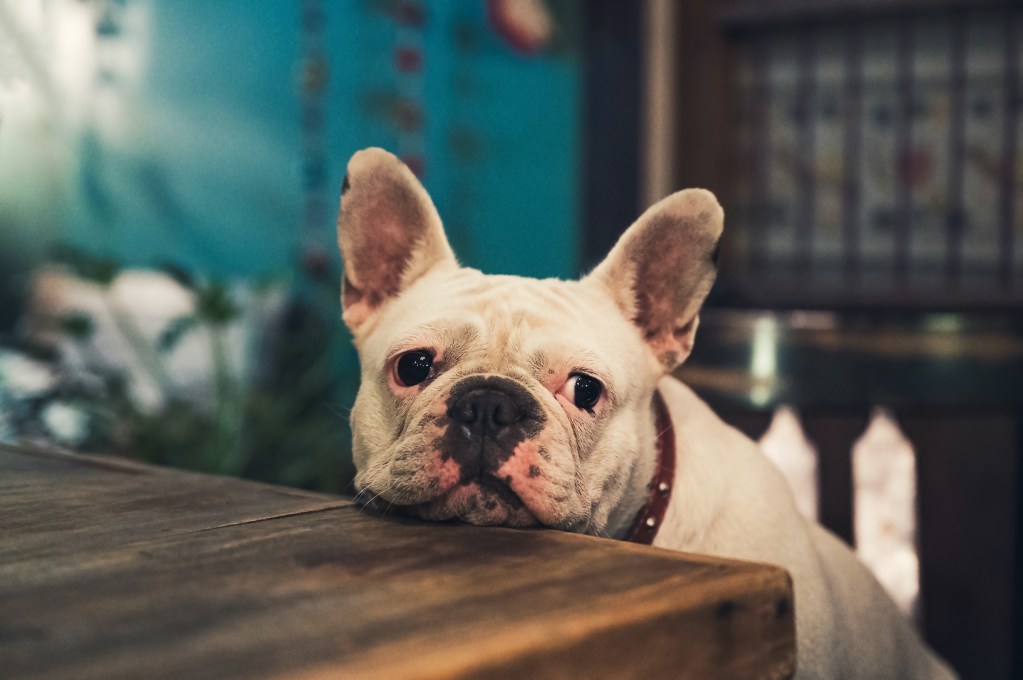
Are Frenchies aggressive? How are they around unfamiliar people?
French bulldogs are not typically known as aggressive dogs. The AKC says Frenchies are very open to strangers and want to be friends with everyone. They may even be slightly friendlier than their English peers, according to the AKC. They’re playful and make great companions for families, including those with young children. Frenchies are moderately protective in nature and are not big on barking.
All French bulldogs are different, though, and even the sweetest dogs may react by biting or lunging if they feel threatened (or want to protect you). Early training and socialization are crucial to help dogs learn how to adapt to various situations.
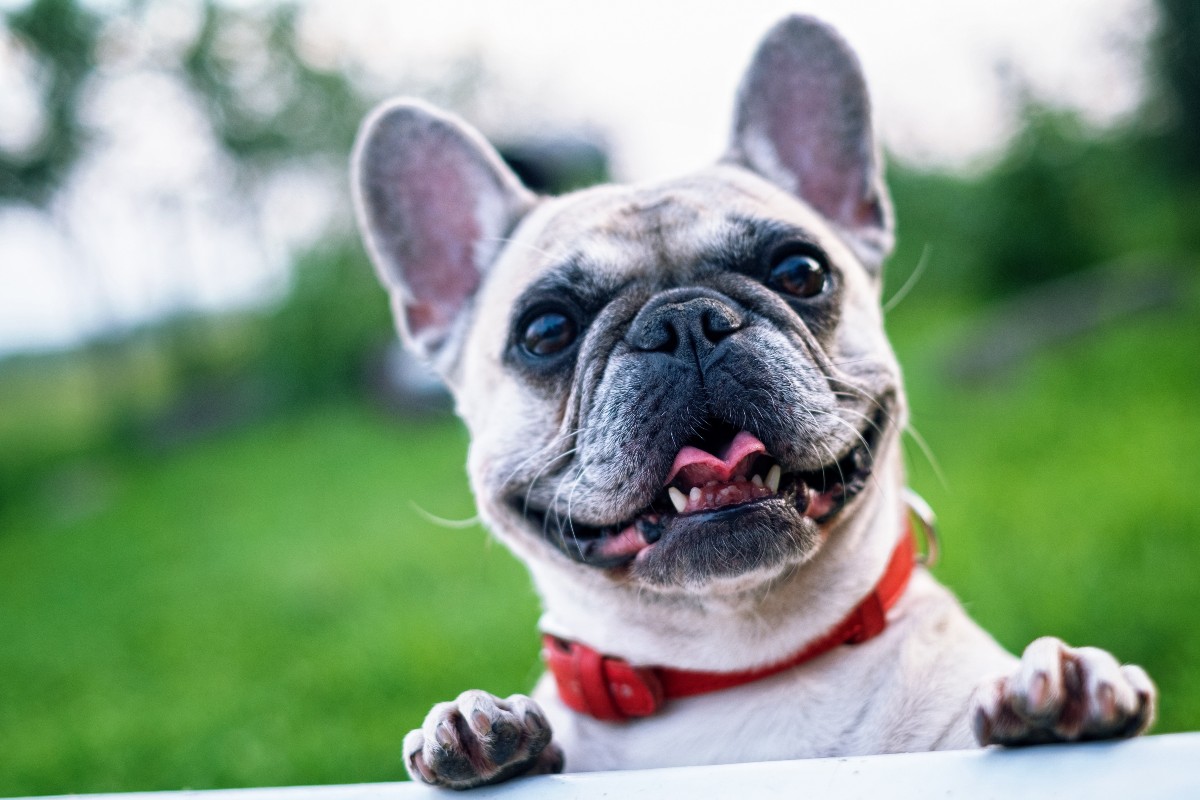
Why you shouldn’t get a French bulldog
Frenchies make great pets for many people, but they aren’t for everyone. You want to ensure that the pet you’re bringing home is one you can and will care for throughout their lives. Avoid a French bulldog if:
You feel nothing beats the heat
French bulldogs are very sensitive to the heat, in part because of their short snouts. Dogs can’t sweat, so they pant to cool down. That’s tough for a flat-faced dog like a Frenchie, so they are twice as likely to suffer from heatstroke as other breeds. If you love hot weather or are looking for a beach pal, a French bulldog may not be for you.
You’re looking for a running buddy
Like any dog, a French bulldog needs daily walks. However, these pups aren’t built to run your next 5k with you. Frenchies have muscular builds but short legs. What’s more, the flat snout makes vigorous exercise tough.
A long lifespan is top-of-mind
French Bulldogs typically live 10 to 12 years. This life expectancy is average for a pup and longer than an English bulldog, which lives 8 to 10 years on average. However, it’s shorter than many other small-breed pups. Chihuahuas and Chinese Cresteds can live 15 to 17 years, and Yorkshire Terriers can live 12 to 15 years. These numbers are simply averages, though. Dogs can outlive their breed’s life expectancy (or, sadly, head to the rainbow bridge sooner).
French bulldogs are small-breed dogs with bat ears and wrinkly noses. Are French bulldogs good pets, though? They’ve historically been a hit with Parisian women and upper-crust U.S. families, but Frenchies aren’t haughty, high-maintenance dogs. They’re very affectionate towards family members, including children, and don’t require regular trips to the groomer for pampering. French bulldogs don’t bark much, and they’re generally adaptable, easy to train, and content with a couple of walks a day. A Frenchie would love a life spent cuddling in your lap. Not all French bulldogs are the same, though. It’s best to meet a Frenchie before deciding to make them your forever lapdog, as nurture combines with nature to shape how an animal behaves. Shelters and breeders are typically more than happy to schedule a meet-and-greet so you can get to know the pup first.


